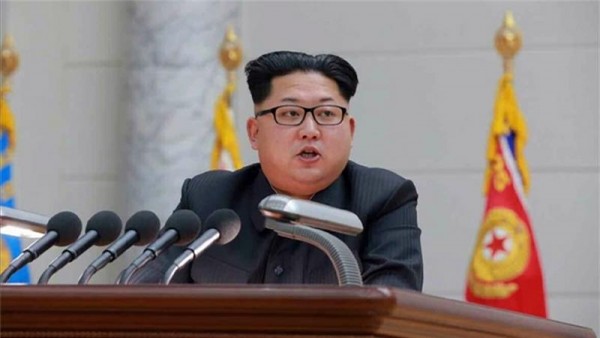
Advertisement
North Korea claims it wishes to resolve its nuclear issues with the United States through negotiations, warning that the country is capable of attacking America with its tested hydrogen bomb.
The threat follows a declaration from North Korea last month, when the outcast state claimed to have tested a hydrogen bomb. North Korea released footage of a submarine-launched ballistic missile, which they claim could deliver the weapon.
“Experts the world over have said the development of a hydrogen bomb following the production of nuclear bombs is commonplace and have predicted North Korea would develop thermonuclear weapons technology. But the United States in its state of ‘psychological avoidance’ refuses to admit to [the reality],” North Korea said.
North Korea’s H-bomb test called out for bluff
Authorities have called North Korea’s H-bomb test out for bluff, stating the explosion wasn’t powerful enough to qualify as a fully-functional thermonuclear device, which would be 100 times stronger. The KCNA state news agency said that the test wasn’t intended to threaten or provoke anyone.
Despite these remarks, North Korea’s activities did provoke major world leaders. The U.S. and South Korea have started formal talks about the deployment of an advanced missile defense system, which would shield the country from Pyongyang, the capital of North Korea.
Pyongyang claimed North Korea “had no need to test a hydrogen bomb” since the country already has the ability to create nuclear weapons, and to upgrade its weapons of mass destruction.

“We have told the United States if they cease their aggressive invasion exercises aimed at [North Korea], we would hold off on a nuclear test,” North Korea said.
This request was never fulfilled, according to Pyongyang, adding it had the means necessary to make an unlimited supply of hydrogen bombs that could decimate the U.S. mainland. Had North Korea’s territory been as large as the United States’, they could have tested a bomb a “hundred-fold” more powerful, reports state media.
According to a California-based Middlebury Institute’s James Martin Centre for Nonproliferation Studies (CNS), North Korea’s H-bomb test “failed catastrophically,” which had to be covered up with doctored footage.
Tensions grow between North and South
Although North Korea may have a shortage of H-bombs, they do not have a shortage of threats. South Korean President Park Geun-hye warned additional “provocations” from the North, like cyber terrorism, were possible. She pressed new and tougher sanctions ought to be issued.
“We are cooperating closely with the United States and allies to come up with effective sanctions that will make North Korea feel bone-numbing pain, not only at the Security Council but also bilaterally and multilaterally,” she noted in a speech.
Park added that South Korea and China were talking about a U.N. Security Council resolution on North Korea. China has said many times that it would not tolerate the North’s nuclear program. China is the North’s foremost ally and trade partner but is against its weapons. Meanwhile, China and South Korea have become close in the past few years.
“I am certain that China is very well aware if such a strong will isn’t followed by necessary steps, we will not be able to stop the North’s fifth and sixth nuclear tests and we cannot guarantee true peace and stability,” Park said. “I believe the Chinese government will not allow the situation on the Korean peninsula to deteriorate further.”
The general consensus among Washington is that a stronger reaction is needed to North Korea’s threats. U.S. Sen. Cory Gardner, R-Colo endorsed a North Korea sanction, which passed without opposition at the Senate Foreign Relations Committee.
The legislation involves penalties for North Korea cyber offenses, and sanctions for trade on metals that could be used by the country to manufacture weapons.
Sources include:
(1) UPI.com
(2) Express.CO.UK
(3) DailyMail.CO.UK
Submit a correction >>
This article may contain statements that reflect the opinion of the author
Advertisement
Advertisements















